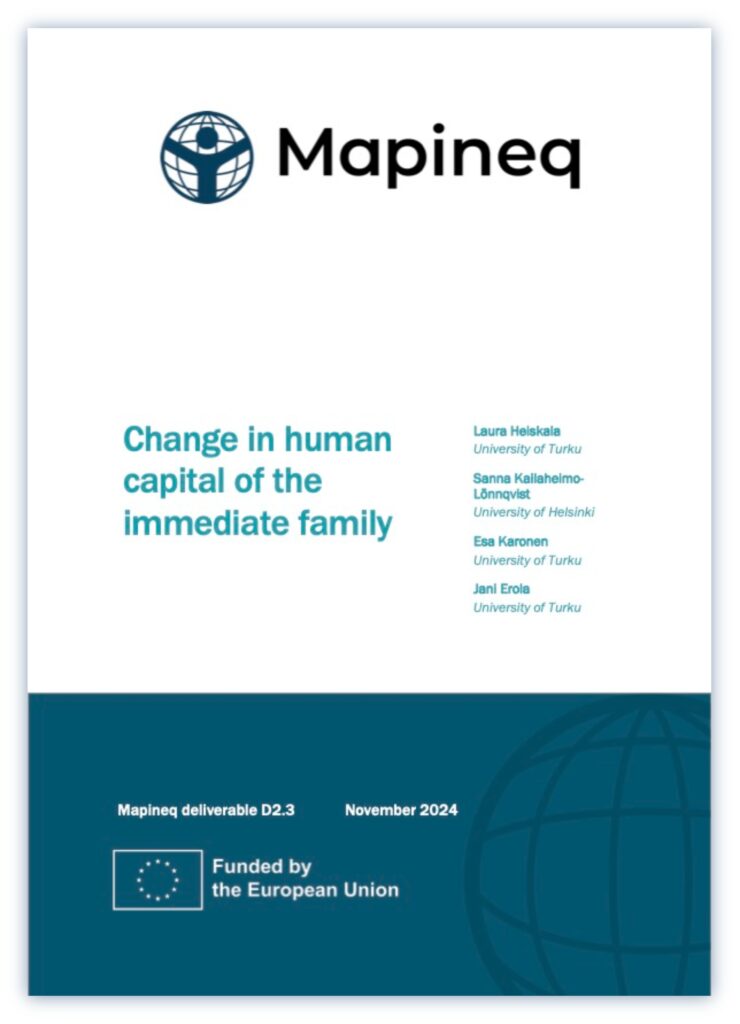Change in human capital of the immediate family
This study examines the dynamics of human capital within immediate families and their implications for children’s education. We explore three key sources of change: the loss of human capital due to parental separations or deaths, the potential compensation of it from co-residing stepparents, and the effects of parents obtaining new educational degrees. Using high-quality Finnish full population register data on child cohorts 1987–1999 (N=702 038) and linear regression models (OLS), we find that changes in family structure are negatively related to children’s education (measured as years of education at the age of 23), consistent with findings from previous studies. Moreover, while between-family models indicate that parental attainment of new educational degrees enhances children’s educational outcomes, especially among families with moderate levels of human capital, our sibling fixed-effects models suggest that this increase may be influenced by selection bias among parents who pursue these degrees.
By Laura Heiskala, Sanna Kailaheimo-Lönnqvist, Esa Karonen & Jani Erola.

Parental separation, death, and re-partnering are negatively associated with children’s educational outcomes. Children from families with no changes in family structure tend to achieve higher levels of education compared to others.

In stable families, children whose parents attain higher levels of education tend to achieve better educational outcomes than their peers. However, sibling comparisons suggest that this improvement may stem from selection bias rather than a direct effect of parental education upgrades.

Changes in the human capital of the immediate family are seldom positively associated with children’s educational outcomes.

